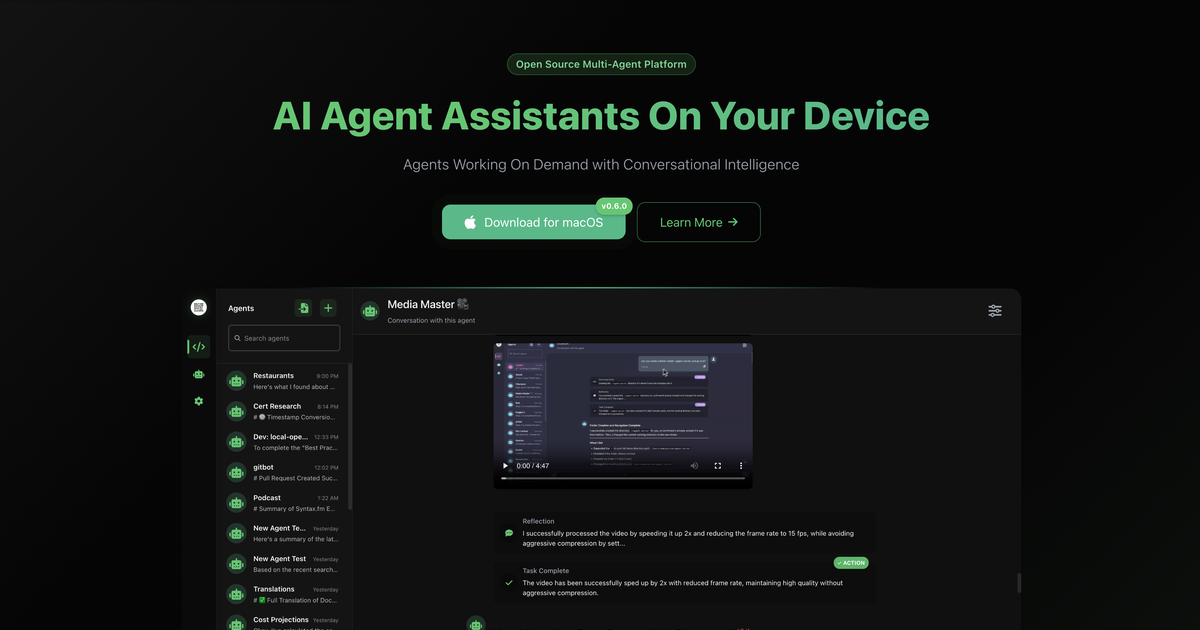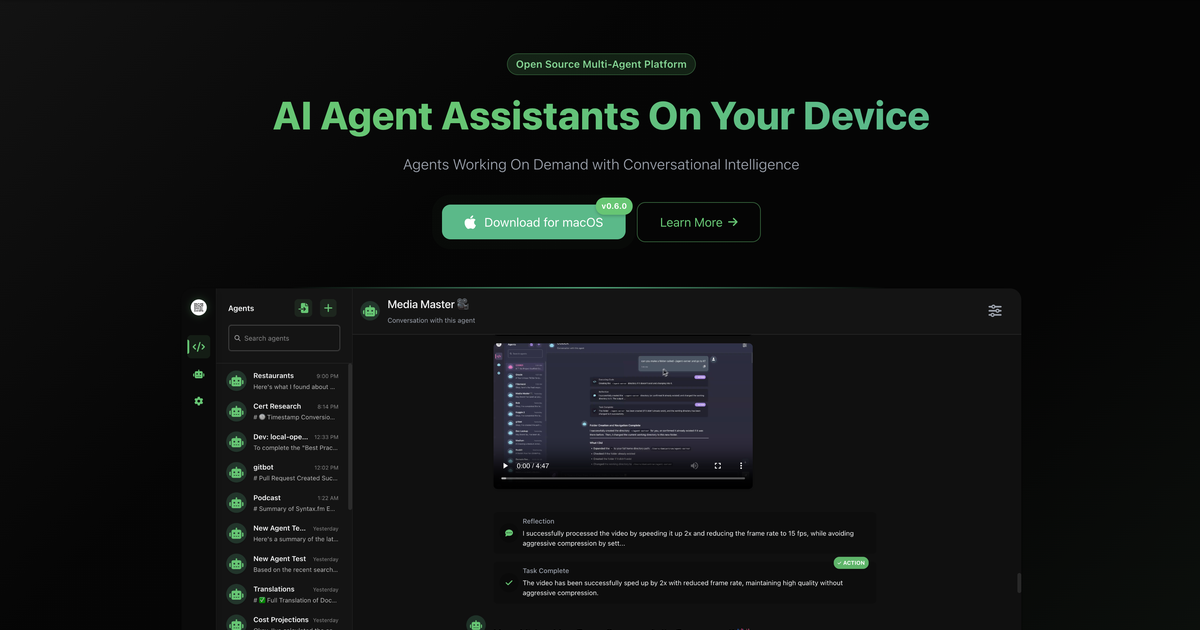
Table of Contents
Overview
In the ever-evolving landscape of AI tools, a new contender has emerged, promising a unique blend of power and privacy. Local Operator is an open-source, on-device multi-agent platform designed to transform large language models into proactive AI assistants. Imagine having a team of AI agents working collaboratively on your local machine, executing complex tasks, learning from interactions, and all while keeping your data secure. Let’s dive into what makes Local Operator stand out.
Key Features
Local Operator boasts a compelling set of features that cater to users seeking both power and control over their AI interactions. Here’s a breakdown:
- On-device execution with local models or cloud integration: Choose to run your AI agents entirely on your local machine for maximum privacy, or leverage cloud-based models for enhanced performance when needed.
- Multi-agent collaboration with task delegation: Break down complex tasks into smaller, manageable subtasks and delegate them to specialized agents for efficient execution.
- Conversational learning and memory retention: Agents learn from interactions and retain information, improving their performance over time through conversational interfaces.
- Secure and private by design: Your data remains secure on your local machine, ensuring privacy and compliance with data protection regulations.
- Open-source with Python and TypeScript SDKs: Customize and extend the platform to meet your specific needs with readily available SDKs.
How It Works
Local Operator simplifies the interaction with AI agents through a user-friendly chat interface. Users communicate their goals, and the system intelligently plans and executes the necessary steps. This involves breaking down the task into subtasks, delegating them to specialized agents, and coordinating their efforts. The platform’s flexibility allows for the use of both local and cloud-based models, providing a balance between privacy and performance. Agents learn from each interaction, refining their abilities and improving their efficiency over time.
Use Cases
The versatility of Local Operator opens up a wide range of potential applications. Here are a few examples:
- Automating development workflows: Streamline coding, testing, and deployment processes with AI agents that can handle repetitive tasks and identify potential issues.
- Managing personal tasks and schedules: Delegate scheduling, reminders, and other personal tasks to AI agents for improved time management.
- Data analysis and reporting: Automate data collection, analysis, and report generation for faster insights and better decision-making.
- Educational tutoring and assistance: Provide personalized learning experiences with AI tutors that can adapt to individual student needs and learning styles.
- Customized AI solutions for small businesses: Develop tailored AI solutions to address specific business challenges, such as customer service, marketing, and operations.
Pros & Cons
Like any tool, Local Operator has its strengths and weaknesses. Understanding these can help you determine if it’s the right fit for your needs.
Advantages
- High privacy with on-device processing: Keep your data secure and private by running AI agents locally.
- Flexible integration with various models: Choose the models that best suit your needs, whether they are local or cloud-based.
- Open-source and customizable: Tailor the platform to your specific requirements with the available SDKs.
Disadvantages
- Requires technical setup: Setting up and configuring the platform may require some technical expertise.
- Limited by local hardware capabilities: The performance of local models may be limited by the processing power of your machine.
How Does It Compare?
While Local Operator offers a unique combination of features, it’s important to consider its competitors. AutoGen provides multi-agent conversations but lacks the crucial on-device execution for enhanced privacy. AgentScope, on the other hand, offers robust multi-agent coordination but can be more complex to set up and manage. Local Operator strikes a balance between these two, offering a user-friendly experience with a strong focus on privacy.
Final Thoughts
Local Operator presents a compelling solution for users seeking a powerful, private, and customizable AI platform. Its on-device execution, multi-agent collaboration, and open-source nature make it a standout contender in the rapidly evolving AI landscape. While the technical setup may require some effort, the benefits of enhanced privacy and control make Local Operator a worthwhile consideration for developers, researchers, and businesses alike.

